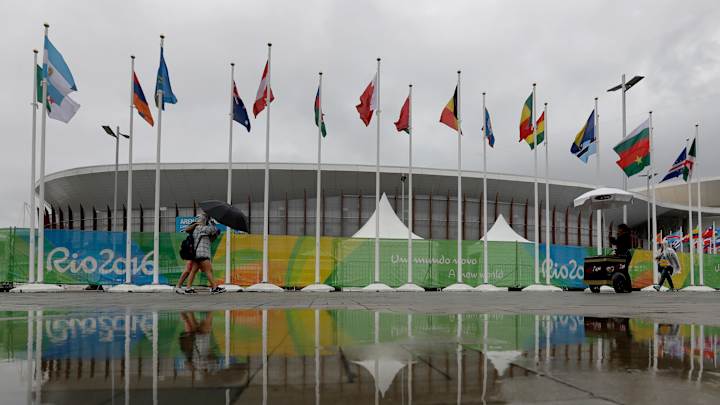Bad economy may spoil future plans for Rio's Olympic Park

RIO DE JANEIRO (AP) The celebrations are done and the torch extinguished, but now that the Olympics are gone, Rio is left with questions about what will become of the city's plan to convert the Olympic Park into a bustling recreational district with luxury apartments and offices.
Amid a continuing national recession, the consortium behind the park has sold less than 7 percent of the Olympic Village's 3,604 apartments, and real estate experts worry a similar fate is ahead for the main Olympic site where the city is hoping private companies build housing and offices in close to half of the park's land.
''Right now we are in the bottom of a well. Nobody is making offers on apartments, and there are many apartments sitting empty,'' said Claudio Tavares de Alencar, president of the Latin American Real Estate Society.
When Rio de Janeiro was picked as the Olympic host city seven years ago, the country was a darling of the emerging markets. Rich oil fields had been discovered and, in 2010, the nation's economy grew by 7.5 percent. Bidding wars for apartments were common then, and in 2005 some 1,500 apartments built for the Pan American Games sold out just hours after they went on the market.
The financial landscape is far different now. Brazil's economy contracted 3.8 percent last year and is expected to keep shrinking, affected by a slowing demand for iron ore and other commodities. Across the nation, more than 5 million people have lost their jobs since the end of 2014.
There's an oversupply of apartments all over Rio, obvious by the sight of partially built towers. After years of rising, prices per square meter have dropped 6 percent in the last year and a half to 10,241 reals, or about $3,200, according to real estate index FipeZap. With financial institutions charging prohibitively high rates for lending, real estate agencies have begun offering incentives such as honeymoon trips or private school tuition.
Rio 2016 organizers and city officials have not talked about how the weak market could affect the potential for development of the 12.7-million-square-foot Olympic Park and its environs. But Leonardo Schneider, vice president of Rio's housing union, said residential and commercial space are key pieces of the puzzle and that too many buildings around the park are unfinished or vacant.
''The problem is how we fill up those apartments,'' said Schneider. ''As good as it sounds to live in the Olympic Park, it's going to take some time to find occupants and transform the area.''
Carlos Carvalho, the billionaire who developed the Olympic Park and village, has infuriated many in a country that desperately needs subsidized housing for saying the athletes village caters to the city's elite. It is called ''Ilha Pura'' - Pure Island - and apartments average 1.4 million reals ($435,000), offering amenities such as pools, a spa and a beauty salon. Penthouses of 1,700 square feet go for up to 2.3 million reals ($700,000). Another wealthy developer is building luxury marble and glass high-rise apartments around the Olympic golf course, with units that will start at about $2 million.
''They are very nice-looking apartments,'' said Idenir Cunha, a 67-year-old retired physician's assistant who lives in an older complex nearby. ''If I had the money, I would love to buy one. But in the middle of this crisis, who does?''
London 2012's village was turned into an affordable-housing complex, where people paid below-market purchase prices. In Rio, a study by real estate data company Geoimovel found that the village's apartments were advertising for well above the average price of most apartments with same features in Barra da Tijuca, a neighborhood of flashy shopping malls and lavish high-rise apartments that is home to the Olympic Park and athletes village.
Many in Brazil protested the 39.1 billion Brazilian reals, or $12 billion, in public and private money that went to building Olympic venues and infrastructure, and the spending isn't over.
The city will pay more than $300 million to dismantle or convert some of the sporting venues inside Olympic Park. The arena that housed fencing and taekwondo will be turned into a school for about 1,000 students with a focus on sport. A racetrack will be added to the park. And salvaged materials from one of the stadiums will be used to build four schools elsewhere, the city says.
Brazil faced scrutiny for building expensive venues for the 2014 World Cup that wound up being barely used after the event. Some of the stadiums that cost several times their initial estimates were built in remote areas without first-division soccer teams and are now playing host to weddings or are used as parking lots.
With the Olympics, ''everything was conceived in terms of what it would become after the games,'' Rio Mayor Eduardo Paes said this weekend in an interview with Globo TV. As for white elephants? ''No way,'' he said.
------
Adriana Gomez Licon is on Twitter http://twitter.com/agomezlicon
